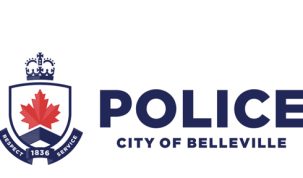Lowering the age of self-referral to mammograms to 40 connecting more women to life-saving screening sooner
“Breast cancer affects one in every nine women in Ontario and we know early detection and increased access to treatment and care saves lives,” said Sylvia Jones, Deputy Premier and Minister of Health. “That is why today our government is proud to take this historic step by connecting an additional one million Ontarians to the care they need, when and where they need it.”
Research has shown regular screening with mammography can help detect breast cancer before it has the chance to spread. By lowering the age of self-referral from 50 to 40, more women can now easily self-refer for mammograms through any OBSP site or by calling 1-800-668-9304 without needing a referral from a primary care provider.
To support this historic expansion of publicly funded mammograms, the province has invested nearly $20 million to increase the ability of participating OBSP partners to connect more women to screening by adding more site hours, appointment spots and training additional staff.
Of the one million women between ages 40-49 that are now eligible for mammograms, it is estimated that an additional 305,000 will self refer for screening. That’s why, during Breast Cancer Awareness Month, the province is encouraging all eligible women to have conversations with a health care provider or call Health811 to have a conversation about their risk of cancer and the potential benefits of breast cancer screening to determine if screening is right for them.
As part of Your Health: A Plan for Connected and Convenient Care, the Ontario government is connecting more people to the services they need, when they need them. This includes ensuring communities have the tools they need to diagnose and treat illnesses earlier and keep people healthier.
Quick Facts
- Through the OBSP, hospitals and other participating clinics perform approximately 700,000 screening mammograms each year in Ontario.
- When found early, many people survive breast cancer, with a 100 per cent, five-year relative survival rate for those diagnosed at stage 1. However, the survival rate drops to less than 30 per cent for those diagnosed at stage 4. Early detection is critical.
- Through Your Health, the Ontario government has added 49 new MRI machines and approved 50 new CT machines in hospitals across the province, this is in addition to the 100,000 people that will be connected to diagnostic imaging through the province’s community surgical and diagnostic centre expansion.
- The province is continuing to grow the health care workforce adding a historic number of new nurses and laboratory technologists through the Ontario Learn and Stay Grant, As of Right rules and the 700 additional education seats for medical radiation and imaging technologists, medical laboratory technologists, medical lab technicians and medical radiation extenders announced in the 2024 budget.
























